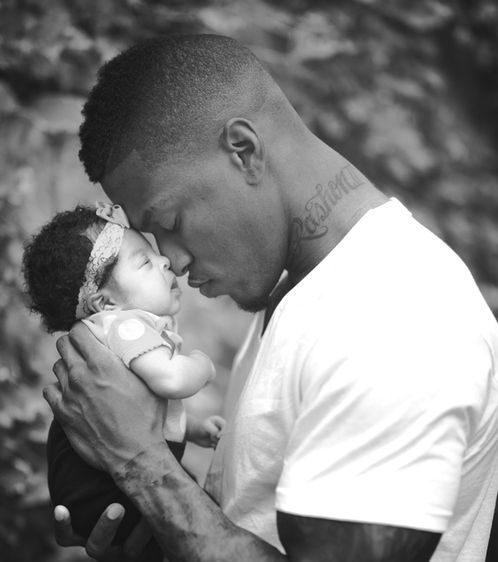
by Lee Ann M. Pomrenke
When I became a mother, people talked to me almost exclusively about my child. The occasional sympathetic inquiry of me as a parent was: “How are you adjusting?” My response was always “instantly.” There seemed to be no other option, because kids constantly need you to react (and we adopted a toddler first, so had the added challenge of chasing her) – lovingly yet with instinctual, sound judgment. One can read books and articles about best practices, consult experts, peers or more experienced parents, but in the moment, we are mostly flying by the seat of our pants. We are trying so hard to do the parenting thing well, that we rarely pause to notice how radically we ourselves have changed.
I believe God gets that. Something fundamentally shifts too, after God becomes a parent, as Jesus is born into the human family. We start a new Testament, in fact. Like all new parents, God could have grappled with new elements of self-identity, and also a difference in how others respond to or view them. Not being able to read the mind of God, we aren’t qualified to speculate on the self-identity piece; even the Scriptures, inspired as they are by the Holy Spirit, were written by human beings. But it is revelatory enough just to notice how differently God acts, according to those human witnesses who wrote down Scripture, once God becomes a Parent.
I notice a more relational approach in Parent God, than I ever did in God the Creator/the Lord God of Abraham, Isaac and Jacob. God-before-parenting creates with a word, promises to establish a people more numerous than the stars in the sky then makes it happen, and both speaks fierce judgment and calls to repentance through the prophets. God declares things and people have to come into place around the plan. Are there any parents out there who get this to work? Pre-parenting God has a plan for God’s chosen people and if certain individuals don’t go along with it, God could use others. The story of Esther makes that point succinctly: “For if you keep silence at such a time as this, relief and deliverance will rise for the Jews from another quarter, but you and your father’s family will perish” (Esther 4:13 RSV). When you have beloved children, they are the plan. Raising them into independent beings who will change the world doesn’t happen by command, but through loving them and modeling in relationship how to become people who love others before themselves. It is heart-breaking, being invested in unpredictable individuals instead of in a plan, but that is the commitment of parents.
I recognize in the birth announcements of Jesus the great ambivalence of becoming a parent. There is unabashed hope yet also preemptive grief for bringing a child into a world that will be offended and threatened by their very existence. Did God know intimately the dual hope and fear of every Mary & Joseph, or Maria and Jose, or Maryam & Yusuf (Arabic transliteration) even today, birthing children with brown skin into our context? Once your child is in the world, this evocative phrase is painfully true: your heart is walking around outside of your body, in the hostile world. Hope: the news of Mary’s pregnancy can cause the cousin-to-be to leap in his elderly mother’s womb! Grief: and cause her betrothed to start planning to divorce her discreetly. There’s all this hope – tidings of great joy – for this son of God. And so much vulnerability. God pulls out all the stops and sends out the birth announcement via heavenly angels and a unique star in the heavens, yet the only ones who notice are shepherds, who find the holy family among the animals, for there was no room where it is fit for human habitation. Wise foreigners travel from far away to meet the blessed child, yet when they ask for directions it triggers a mass killing of infants. God knows it is a gruesomely vulnerable thing, to take as part of one’s identity raising a child into adulthood.
Parenting changes our standards for what we need to get done, and how we are going to do it. Would we say that it changed God? It certainly changed how God taught us to interpret events, through Jesus. In the Old Testament, God’s favor was aligned with abundance. Why did Jethro’s flocks flourish when Moses took over management of them? Why did the Hebrew slave population explode in Egypt? Foreign powers, oppressors, were allowed/used to get Israel and Judah’s attention, to turn them back to the Lord, so it was fair to equate being conquered or exiled with God’s judgment or wrath. The seeds of a “prosperity Gospel” philosophy are definitely there if you’re looking to make that argument. Yet when God becomes a Parent of Jesus, suddenly the opposite is true. Being despised by the world is now part of belonging to God’s family; taking the place of a servant. The last shall be first and the first shall be last. Blessed are you when people revile you for his name’s sake. Crucifixion is no longer simply a criminal execution, but Jesus’ crucifixion is a pre-cursor to resurrection for all people.
“In becoming a parent, God re-defines how to relate to God’s former self, the chosen people, and all of humankind. God is still the God of the whirlwind, the God of Israel, the God of King David. Much as that person I was before “mom” became my defining feature still lives inside me somewhere. And yet, now that relationship of parent and child is paramount, because it does in fact change.”
Lee Ann M. Pomrenke is a writer, mother, and Lutheran pastor in St. Paul, MN. She blogs at leeannpomrenke.com.

